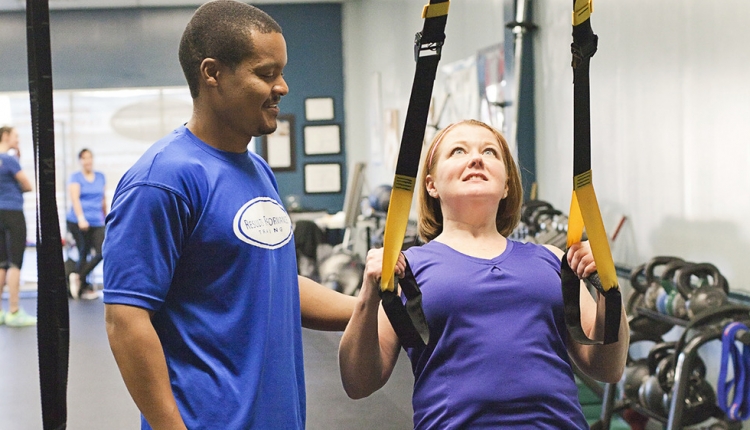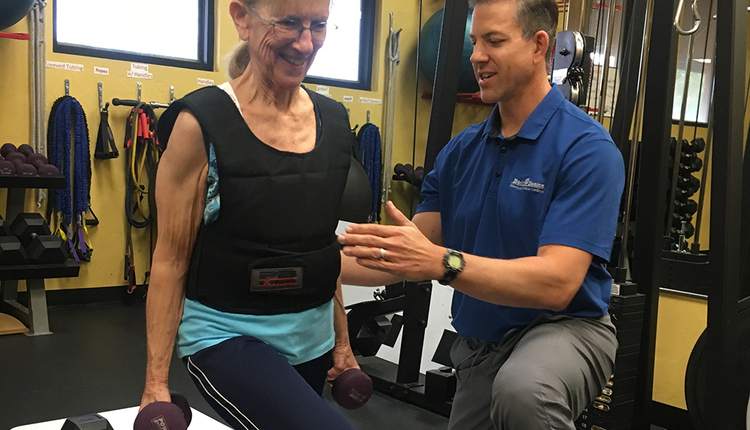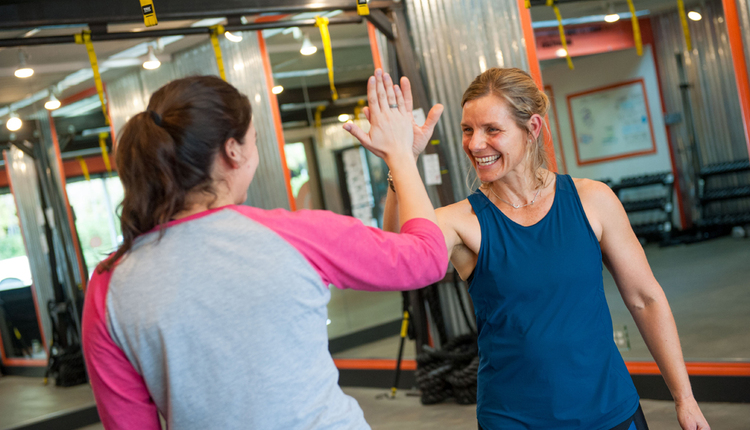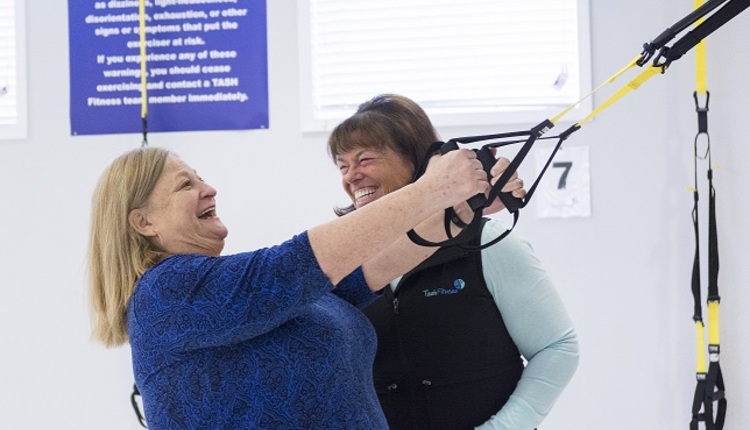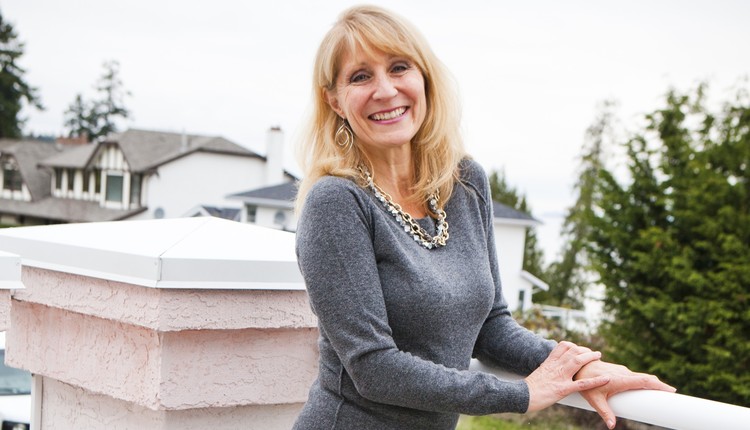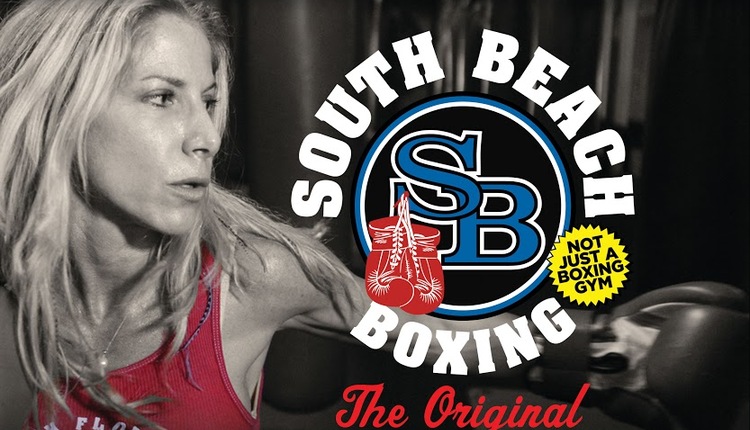MartinMcLoughlin had met with modest success as personaltraineruntil a dark evening in July 2007 changed his life andcareerforever. Riding his motorcycle, McLoughlin was struckhead-onby a drunk driver and left for dead.
TheAccident
Theminivan seemed to appear out of nowhere and hitMcLoughlinbefore he had time to react, propelling him over the hood tocrash-landupside down on the other side of vehicle, tumbling to a stopin amotionless heap. When the driver stumbled out of her car to checkonhim, he asked her to call 911. She didn't. Instead, she got back in herminivanand sped away.
McLoughlin'sneck was broken, and the pain was excruciating. As he layinthe middle of the street, unable to reach the cell phone in his pocket, hestaredup at the stars and made his peace with God, quite certain those werehislast moments. Then he heard a stranger's voice say, "Stop moving, hon'. Isaweverything. I got her license plate, and I dialed 911."
McLoughlinwas rushed to a trauma center, and the drunk driver was arrested11minutes later. At the hospital, a neurologist told him he was luckytobe alive, but any hopes of a future in personal training were unrealistic.Withhis wife and mother crying at his bedside, McLoughlin said, "Listen,hedoes not know me. I will not give up, and I will recover from this."ââ
McLoughlinknew what it took to heal others. Several years earlier, asastaff trainer at a large, chain health club, he took on clients who soughtrecoveryand post-rehab work. One client was recovering from a stroke andwaswheelchair-bound. His goal was to walk from the workout area to thejuicebar for his post-workout drink.
Aftermonths of gait and strength training the man, McLoughlin watchedasone day he ambled all the way to the juice bar. The girl at the bar, the clientandMcLoughlin all cried as the man crossed his furthest point yet andachievedthe goal he once believed was impossible.
Amidthe high emotion, another trainer at the facility dubbed McLoughlin "TheHealer,"ââ a title he still wears with pride. However, his healing skillswouldbe put to the test on himself - a completely different challenge thantrainingsomeone else. But he was determined to regain his healthy bodyandthe career he loved.
TheRecovery
Fivedays after the accident and still in the hospital,McLoughlinasked his nurse for a walker. In almost unbearable pain, hepeeledhimself off the bed, onto his feet and out the door of his room.
Thenext four months were tough for McLoughlin, although his familyandclients rallied at his side. Prior to the accident, he had left his trainingjobat the national chain facility and started his own business, Extreme FitnessPersonalTraining. He started by training clients out of his house, butthesteady stream of clients in and out began impacting the sanctity of hisfamily.He soon built a 400-square-foot training studio in his backyard andmaintainedregular clientele there.
BecauseMcLoughlin was the sole breadwinner for his wife and two sons,hisclients understood the financial predicament the accident had put himin.Many clients helped out by cooking meals, cutting his lawn and evenhelpingpay his mortgage. They stood by his side, saying that his trainingserviceswere a part of their monthly budget, and wanted back in his schedulewhenhe was ready.
"Ididn't want to let my clients down,"ââ he remarks. "No matter what painIwas in, I was focused on them."
McLoughlinvisualized himself working out at the gym, as if he werenotinjured, for 60 minutes every day, counting every rep and contractingeverymuscle. Eventually, he graduated from a walker to a cane as hisleftside slowly came back to life. With the help of his wife, McLoughlinbeganwalking from his front door to the sidewalk, then to the neighbor'sdriveway,then to the next. In October, doctors removed his full restrictioncollar.
InNovember, he went back to work, training about five people a dayandincreasing his client load over the next two months. By January,hewas back to a full clientele and actively looking for a new commerciallocationfor his business. The drunk driver, who had no insurance,nodriver's license and an unregistered minivan, was sentenced to 23monthsin prison. But McLoughlin wasn't looking back any longer; itwasfull speed ahead.
TheDream
Afterstaring death in the face, McLoughlin says his approachtolife is radically changed. "I realized how easily you can leave thisplace,"ââhe notes. "The accident took all of the fear, anxiety and mental instabilityofhow I'm going to live this dream. I'm not the person I was before. Iwascomplacent; now I push forward without fear. I have more energy, andI'mnot scared to have multiple irons in the fire."
Beforethe accident, McLoughlin had found a commercial space for histrainingbusiness, but the landlord continually failed to produce a lease forhimto sign. During his recovery, that space was leased to someone else, andhestarted his search again but with more resolve.
Onthe way to the gym one day, McLoughlin saw a "space available"ââ signgoingup in a building that was perfectly suited for a training studio. Heimmediatelyspokewith the landlord, who had wanted a personal trainer in thatspace,and Extreme Fitness had a new 1,500-square-foot commercial home.
McLoughlinworks with his wife and employs three contract trainers.Heopens his studio at 6:00 AM, trains 15 clients in a row, takes a breaktowork out with his 14-year-old son at a local gym, then heads backtohis studio to train another 10-15 clients. "Every morning I put thekeyin the slot at the studio, I feel honored to be the owner, privilegedtochange so many lives and anxious to start the day,"ââ he says. "It neverfeelslike work."
McLoughlinsays word-of-mouth advertising and Facebook are the onlytwomarketing methods he has used to grow his business. And demandcontinuesto be high. In the next year, he plans to move Extreme Fitness intoaspace three times the size of its current studio and add five more trainers,whomhe has mentored himself. He no longer settles for what is but lookstowhat can be.
"Attimes during my journey, I settled for the way things were, beinghappythat I had a business of my own in this horrible economy, when Ishouldhave been pushing for growth,"ââ he says. "I always believed that I hadsomethingto offer that no one else in my area did, but I kept it to myself,notknowing what I was waiting for. A near-death experience changed all ofthat,so, as bad as that whole experience was, if it had not happened, I wouldnotbe where I am now."ââ






